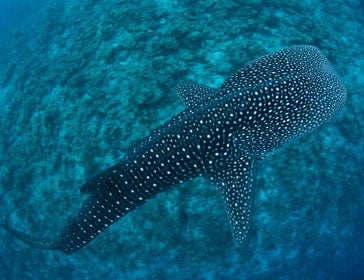Sharks: Overview
 Sharks have been swimming the world’s oceans for more than 400 million years. While they have survived mass extinction events, sharks have not evolved to withstand overexploitation by humans. These top predators are in serious trouble due to heavy fishing pressure, shark finning and bycatch.
Sharks have been swimming the world’s oceans for more than 400 million years. While they have survived mass extinction events, sharks have not evolved to withstand overexploitation by humans. These top predators are in serious trouble due to heavy fishing pressure, shark finning and bycatch.
Of the 307 shark species assessed by the International Union for Conservation of Nature (IUCN), 50 are listed as vulnerable, endangered or critically endangered, but only the white whale and basking sharks are protected internationally under the Convention on International Trade in Endangered Species (CITES). Sharks now represent the greatest percentage of threatened marine species on the IUCN Red List of threatened species.
As apex predators, sharks play a vital role in maintaining the health of marine ecosystems, serving as an indicator of ocean health. Sharks are slow-growing, late-maturing, long-lived and give birth to few young, making them extremely vulnerable to overexploitation.
Today, sharks are considered target species in many EU fisheries. Their fins, exported to Asian markets ,are used for preparing traditional soups, and their livers, intended for the international cosmetics industry, are now among the most expensive products from the sea. In addition, many species are frequently caught as bycatch.
In the EU, shark fisheries management is either nonexistent or little effective. The majority of shark species lack fishing quotas or other control measures, such as closed areas or minimum catch sizes.
The lack of data on catches and trade complicates the assessment of the status of shark populations and the development of optimal regimes for fisheries management of sharks. Even so, there is evidence that they are being caught in an unsustainable manner and that some biologically vulnerable populations are below sustainable levels.

